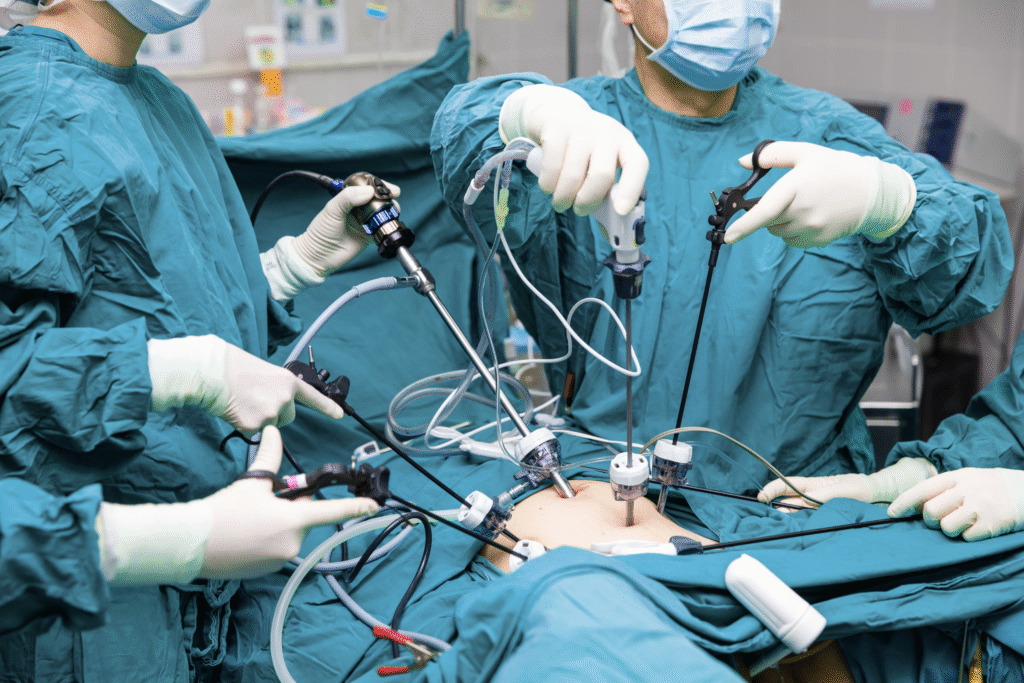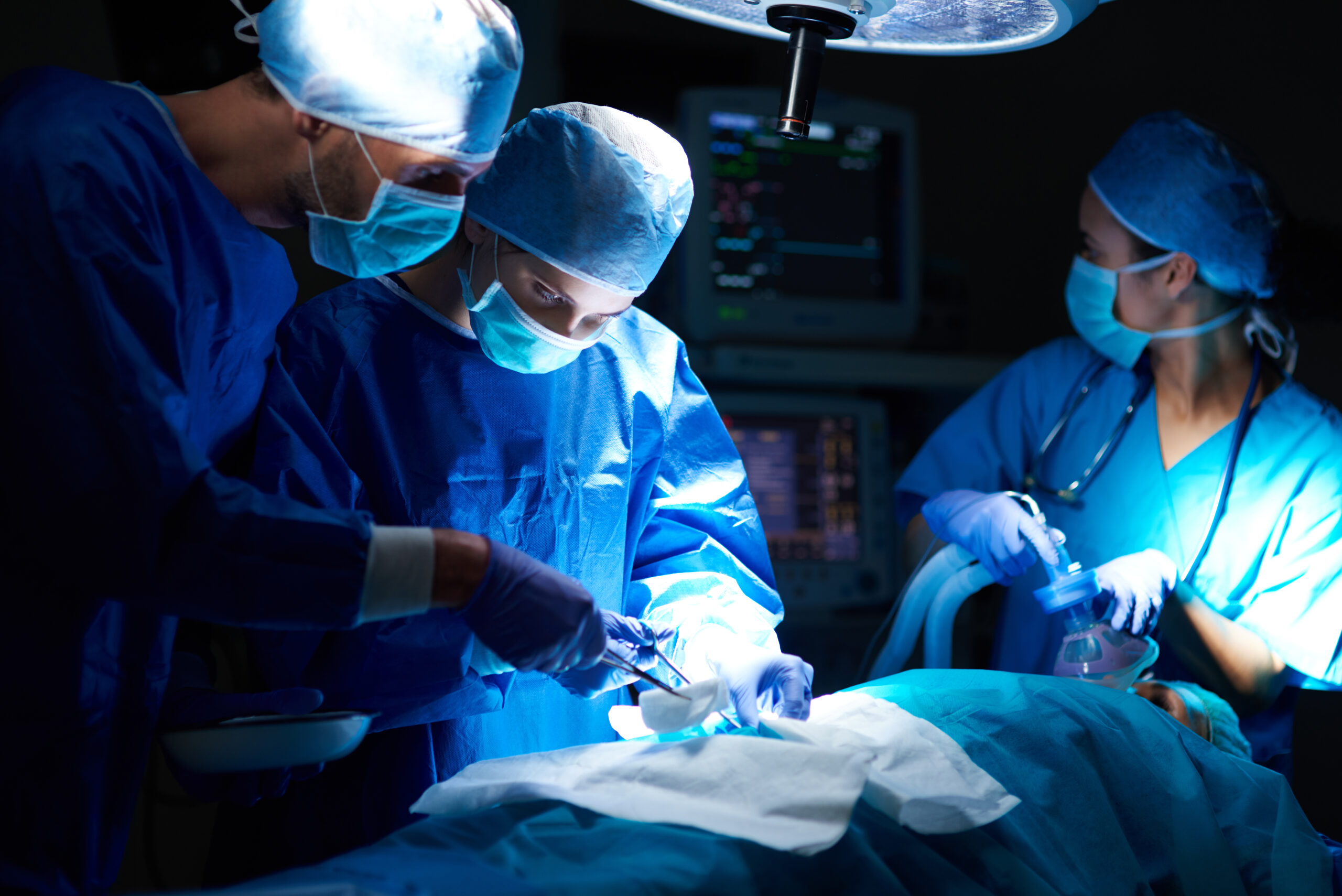Incisional Herina
- Home
- Incisional Herina
Incisional Hernia
Dr. Prashanth Koyyoda provides expert care for managing incisional hernias, offering tailored treatment plans for patients with herniation at previous surgical sites. With proficiency in both open and laparoscopic surgical techniques, he ensures precise repair, reduced pain, and faster recovery. Emphasizing patient safety and lasting results, Dr. Koyyoda is a leading incisional hernia specialist in Hyderabad. His timely interventions prevent risks like bowel obstruction or strangulation, helping patients regain mobility, comfort, and confidence.

Causes & Risk Factors of Incisional Hernia
Recognizing the underlying causes of incisional hernia is essential for effective management and long-term health.
Abdominal Wall Weakness
When the abdominal muscles lose strength, they can no longer properly support internal organs, leading to a hernia. This weakness may develop due to muscle strain, poor healing, or natural deterioration over time. Without proper treatment, it can cause discomfort, swelling, and potential complications.


Excessive Strain & Pressure
Repeated heavy lifting, chronic coughing, or constipation can put excessive pressure on the abdominal wall, weakening its structure. Over time, this strain can cause tissues to push through, leading to an incisional hernia. Without proper precautions, the hernia may enlarge, causing discomfort and complications.
Delayed or Poor Healing
Inadequate healing after surgery due to infections, obesity, or medical conditions like diabetes can compromise the strength of the incision site. This weakened area becomes more prone to herniation, especially when combined with physical stress or improper post-operative care.

Symptoms of Incisional Hernia
A noticeable swelling or lump at the site of a previous surgery.
Aching or sharp pain, especially when lifting or straining.
A feeling of fullness or pressure in the abdomen.
Increased pain or bulging when standing, coughing, or exercising.
Occasional nausea, constipation, or difficulty passing stool.
The bulge may grow over time if left untreated.
Treatment goals for incisional hernia
Restore strength and confidence with advanced treatment options
-
Minimally Invasive Procedures :
Using small incisions, laparoscopic and robotic techniques allow for precise repairs with minimal scarring, reduced pain, and faster healing compared to open surgery. -
Mesh Reinforcement & Effective :
A durable surgical mesh is placed over the weakened abdominal wall to provide additional strength, reducing the risk of recurrence and ensuring long-term stability.. -
Comprehensive Hernia Treatment :
Advanced surgical techniques, including mesh reinforcement and precision repair, strengthen the abdominal wall, minimize complications, and promote long-term recovery. -
Faster Recovery & Reduced Hospital Stay :
Minimally invasive surgery allows quicker healing, less pain, and a shorter hospital stay for a faster return to daily life.
FREQUENTLY ASKED QUESTIONS

An incisional hernia occurs when tissue or organs push through a weakened area of the abdominal wall at the site of a previous surgical incision. Dr. Prashanth diagnoses the condition through physical exams and imaging tests, then offers treatment options such as surgery to repair the hernia and prevent complications.
Symptoms may include a bulge near the surgical site, pain or discomfort, especially when coughing or lifting. If you notice any of these symptoms, it’s crucial to see Dr. Prashanth to prevent the hernia from becoming larger or causing complications like bowel obstruction.
Dr. Prashanth performs a thorough physical examination and may recommend imaging tests, such as ultrasounds or CT scans, to confirm the presence of an incisional hernia. These tests help determine the hernia’s size and whether there are any complications like strangulation or obstruction.
Treatment often involves surgery to repair the hernia and strengthen the abdominal wall. Dr. Prashanth may recommend laparoscopic or open surgery, depending on the hernia’s size and location. He also advises proper post-surgical care to ensure proper healing and prevent recurrence.
While incisional hernias can’t always be prevented, Dr. Prashanth recommends maintaining a healthy weight, avoiding excessive strain after surgery, and following proper wound care to reduce the risk. He also advises gradual return to physical activities post-surgery to avoid undue stress on the abdominal wall.
